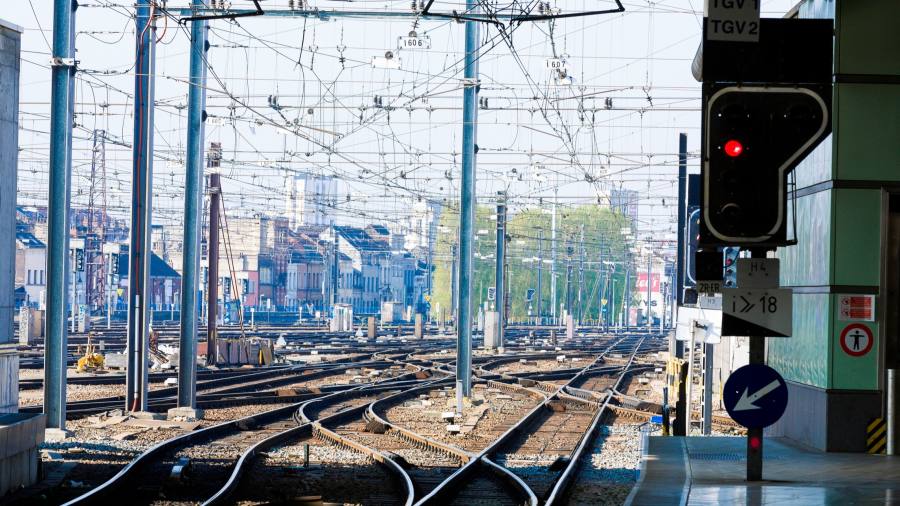The train from London to Amsterdam is a 3hr 52m joke at the expense of the nation state. Four countries zip past without so much as a courtesy announcement over the speaker at each crossing of a border. Staff of indeterminate citizenship offer drinks in three languages. The onscreen message (“Welcome à bord d’Eurostar”) is a franglais pun.
In 2018, when this route began, Donald Trump held office, Jair Bolsonaro got elected and Brexit fans were still in my inbox. It has proved to have more staying power than all of them.
Coach 16, seat 25, is a good place from which to observe the strange resilience of liberalism. I don’t just mean the electoral kind, though let’s start with that. The only major western head of government now who can be called populist is Giorgia Meloni, and even she has curbed her zeal. After a decade or so in which “metropolitan” became a slur, it is likely that Britain’s next leader will be a man whose constituency includes Primrose Hill and (just perfect, this) Bloomsbury.
But I am really getting at something else: life on the ground. The turn against globalisation in the past decade was meant to spell the end of frictionless living. The movement of goods and people would gum up. This process was given a helpful nudge by a lockdown that sealed borders and cast a medieval silence over great cities. I was even feeling magnanimous about the trend of events. I’d had a good ride. Time for a clunkier and less immediate world.
Well, where is it?
Uber isn’t what it was circa 2015, but it is still fine and is improving. (I breezed through a year in Los Angeles without a car.) The labour shortages that afflicted airports and restaurants turned out to be the nuisance of a single summer. Almost whatever I want, Amazon still sends within 72 hours.
If you wish to spend a few years abroad, it would be even easier than a decade ago. These are bumper times for immigration. In 2021, Canada admitted more permanent residents than at any time since 1913. It let in even more last year (and as a target, not an oversight). France set a similar record. Net immigration to the UK is much higher than it was pre-Brexit. The foreign-born share of Germany’s population is now more than 18 per cent. What Hong Kong has lost as a global centre, Singapore has gone some way to picking up.
Give it time, you’ll say. But more than five years have passed since Trump started (he might say “recognised”) the trade war with China. “Deglobalisation” was journalistic currency long before that. I should be feeling some change by now. While the rich can always buy their way out of life’s little frictions, I am your upper-middle-income globalist. I am more exposed to events. Yet the worst I have endured is that a beloved chaise longue took some time to arrive from the port of LA. As hardship goes, this isn’t the Spartan agōge.
What else? Prices are higher, but that is true for everyone, not just those who live as I do. Family cars are dearer, not just hotel rooms and Uber rides. In other words, I am not a relative loser.
You have to go a tax bracket or two below me for that. Although it is framed as elitist, what globalisation did was democratise things that rich people once kept to themselves. (Think of cheap flights and the spread of good coffee.) It follows that deglobalisation is imposing frictions on middle-earners: the 25-year-old me would be stifled. It is for anti-globalists to decide if these people constitute an acceptable tactical sacrifice for the cause.
Either way, I’m fine, thanks, and perhaps so are you. The lesson? Don’t overrate the grand political trends that people like me write about. Their consequences tend to be spread around the population. Whereas one localised event — technological, infrastructural — can register at the personal level. The launch in 2015 of Monzo, which lets me bank via app, has done more to grease the wheels of my life than all the political tumult since then has done to clog them up. So has this train. I might do Paris next week. Or not. I’ll see how I feel on the day.
Email Janan at [email protected]
Read the full article here




